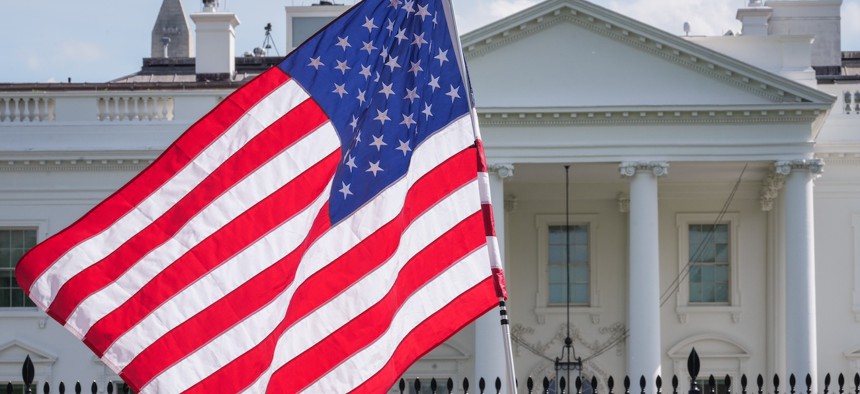
In March, President Trump signed an executive order that aimed to strip most federal employees of their collective bargaining rights. J. David Ake/Getty Images
A judge has moved again to block Trump’s anti-union EO
Just weeks after issuing a preliminary injunction to block an edict aimed at stripping two-thirds of the federal workforce of its collective bargaining rights, U.S. District Judge Paul Friedman issued a similar decision as it relates to U.S. Foreign Service officers.
For the second time in as many months, U.S. District Judge Paul Friedman on Wednesday issued a preliminary injunction blocking the Trump administration from implementing a March executive order that purports to strip two-thirds of the federal workforce of its right to join and be represented by a union.
In March, President Trump signed an executive order citing a rarely used provision of the 1978 Civil Service Reform Act to strip most employees of their collective bargaining rights under the auspices of national security. The edict also applied a similar national security exemption in the law governing U.S. Foreign Service officers to strip them of their union rights at both the State Department and U.S. Agency for International Development.
Like in Friedman’s first decision, the Washington, D.C.-based jurist found that unlike in most other union lawsuits in district court, the American Foreign Service Association may skip administrative review by the Foreign Service Labor Relations Board because Trump’s executive order explicitly removes the union from the quasi-judicial agency’s purview.
“The administrative process of the statute cannot and does not govern here because the executive order at issue removed the agencies and subdivisions in question from coverage of the statute,” Friedman wrote. “Because there is no ‘special statutory review scheme’ that is actually available to AFSA for reviewing its claim, this court is not deprived of jurisdiction.”
Friedman similarly agreed with his previous ruling when examining whether the White House’s order—and accompanying messaging explaining it—revealed retaliatory motives for targeting labor groups that have sought to litigate the president’s workforce policies, citing Government Executive reporting on the selective enforcement of the order at the Veterans Affairs Department.
“AFSA highlights the fact that the executive order—despite excluding two-thirds of the federal workforce from coverage of the statutes—does not strip collective bargaining rights from the U.S. Customs and Border Protection, whose union ‘endorsed the president in last year’s election,’” he wrote. “AFSA argues that ‘if those who are guarding the border do not have national security as a primary mission, then none of the employees excluded do,’ and that therefore the president’s decision to exempt CBP—which is represented by a union that endorsed him—from the executive order offers further evidence of retaliatory motive . . . The additional evidence and argument provided by AFSA bolsters the court’s earlier conclusion in National Treasury Employees Union v. Trump that the White House fact sheet and other contemporaneous evidence ‘reflects retaliatory motive towards certain unions.’”
Friedman’s April decision has since been appealed to the U.S. Court of Appeals for the D.C. Circuit. A three-judge panel is in the midst of considering the administration’s request to stay that decision during the circuit’s review of the case.
How are these changes affecting you? Share your experience with us:
Erich Wagner: ewagner@govexec.com; Signal: ewagner.47
NEXT STORY: The Trump administration is pausing RIFs but probationary firings are resuming







